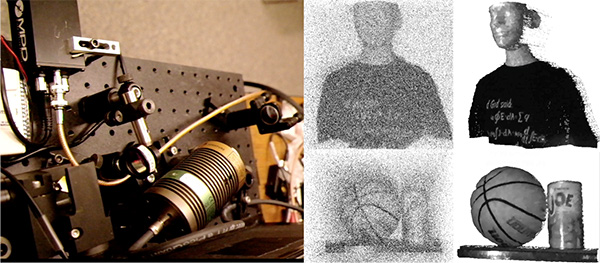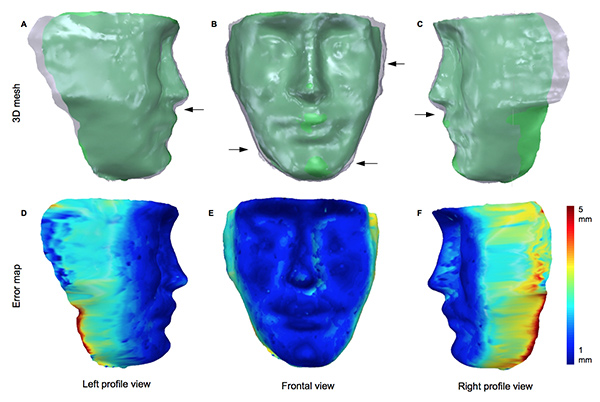Abstract
Imagers that use their own illumination can capture 3D structure and reflectivity information. With photon-counting detectors, images can be acquired at extremely low photon fluxes. To suppress the Poisson noise inherent in low-flux operation, such imagers typically require hundreds of detected photons per pixel for accurate range and reflectivity determination. We introduce a low-flux imaging technique, called first-photon imaging, which is a computational imager that exploits spatial correlations found in real-world scenes and the physics of low-flux measurements. Our technique recovers 3D structure and reflectivity from the first detected photon at each pixel. We demonstrate simultaneous acquisition of sub-pulse duration range and 4-bit reflectivity information in the presence of high background noise. First-photon imaging may be of considerable value to both microscopy and remote sensing.


Videos
Collaborators
Kirmani A., Dheera V., Dongeek S., Franco W., Jeffrey S., Vivek G.
Files
- A Kirmani, D Venkatraman, D Shin, A Colaço, FNC Wong, JH Shapiro, VK Goyal, First Photon Imaging, Science 343 (6166), 58-61
Paper
